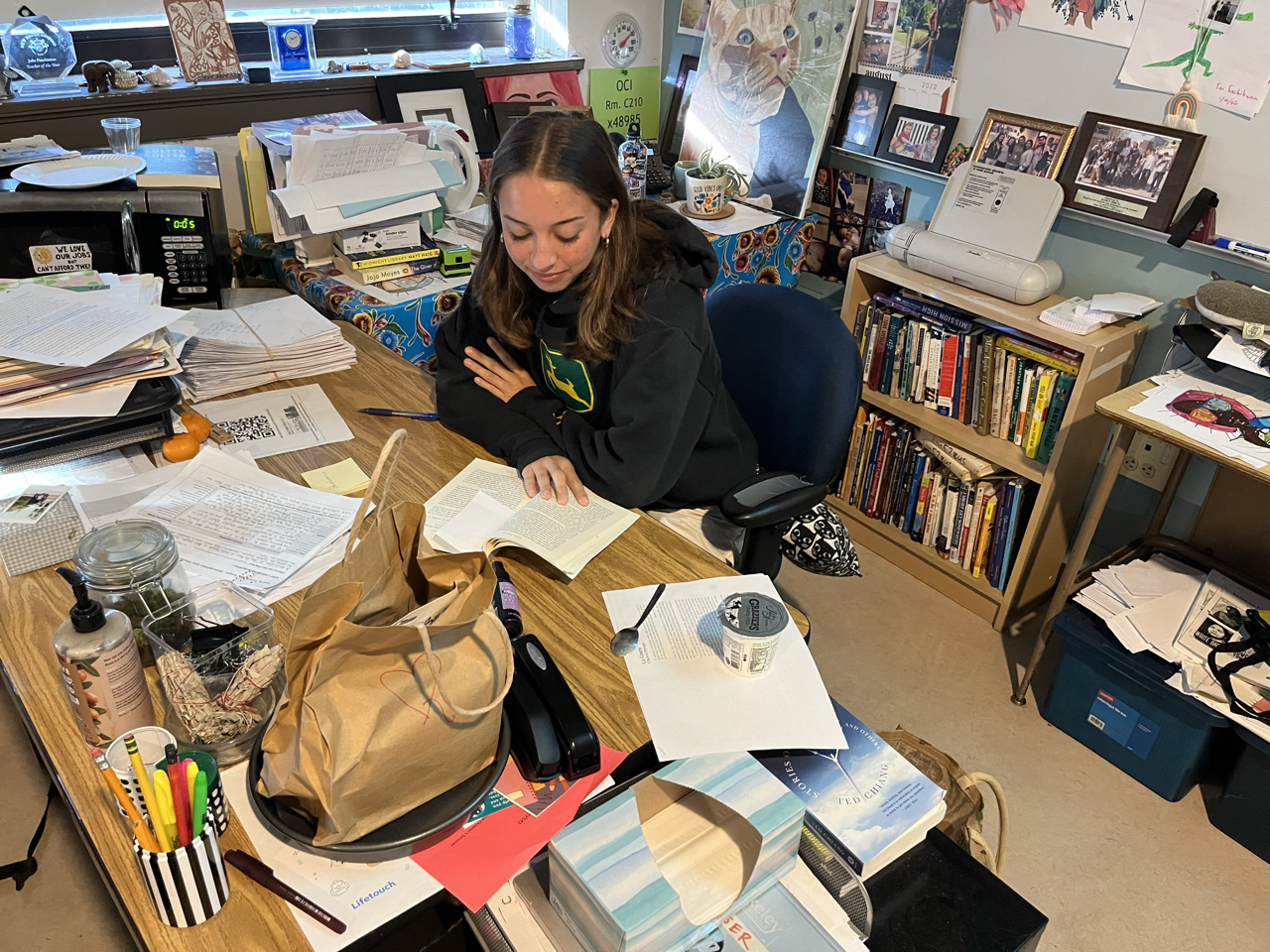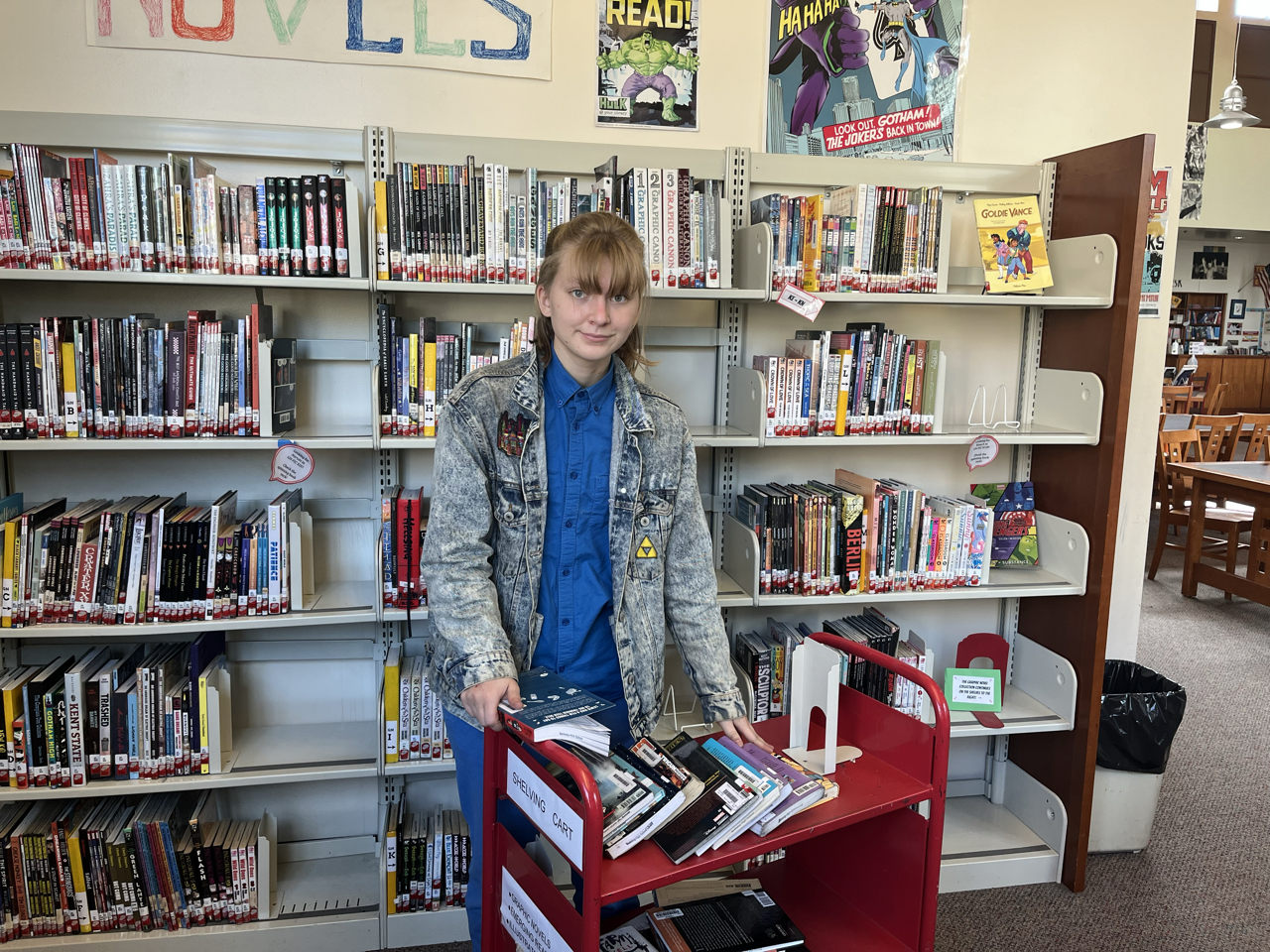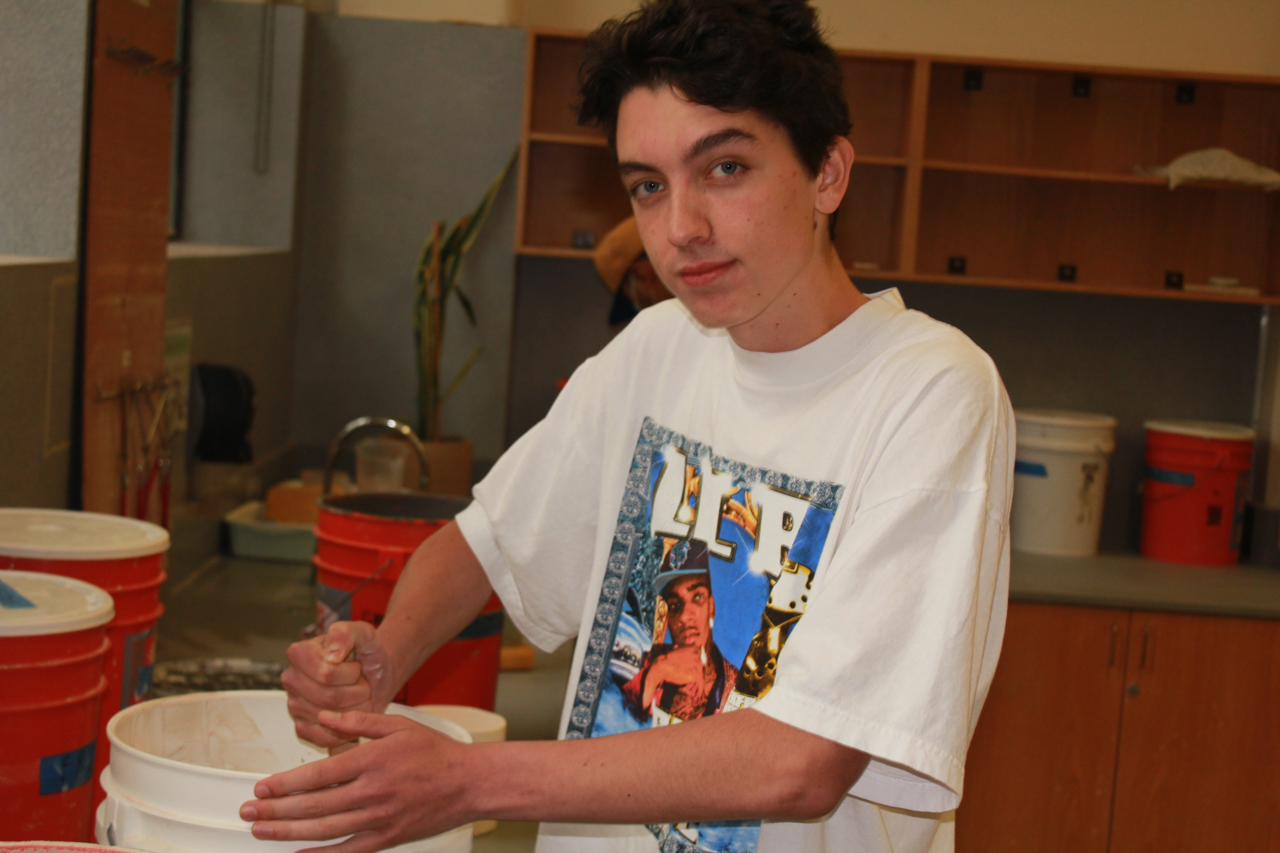

 Henry Grant
Henry Grant
While teachers relentlessly work around the clock, before and after the bell rings, a little help to our educators is always welcomed with open arms. Student proctors, or teacher’s assistants, can be seen in some classes, either grading small papers, washing lab equipment, or helping out students, all in efforts to make the teacher’s job a little easier.
Salem Graves has been coming to the library at lunch every day since their freshman year, and over time presided over the comic section of the library. Now a senior, Graves proctors for the library during fifth period. They are in charge of reshelving books, keeping track of the catalog, and making displays, along with their fellow proctor.
“I normally go over to behind the desk (to) take out the cart,” Graves said, describing what a day in the life of a proctor can look like at the library. “We check in any books that have been returned and I take all those returned books and I reshelve them. I might add or subtract from the displays,” they added.
Last year, BHS senior Giacomo Carlone proctored Andrea Sanguine’s ceramics class.
“(Ms. Sanguine) would have me do various tasks, I would clean stuff or set up the (cutting) wires or the TV, tape stuff on the wall or clean or mop the ground, and sometimes I would just do my homework,” Carlone said. “That's pretty much what (proctoring) is.”
Seniors can proctor classes with an open space in their schedule, where they have the choice for an elective a free period. Being a proctor can fill in your schedule, give you credit, and even can be a study hall. “Sometimes it's like a free period and sometimes it's basic work,” Carlone said. “It was cool.…I'm glad I did it. Especially because I'd say, if you have a busy schedule, and you want to lighten your load, it's definitely a good way to have extra time to do work.”
While proctoring can be beneficial for the student, it can be equally helpful for the teacher. Mendel Chernack, a U9 English teacher, has been working at BHS since 2005, and throughout the years has had classes with and without proctors. According to Chernack, BHS offers no formal system when it comes to having proctors.
“It's really word of mouth,” Chenack said. “Often students come to teachers and just say, hey, can I be your proctor, and it's usually a former student. … I think some teachers try to recruit proctors, but as far as I know, there's no official way to get a proctor other than a mutual agreement with a teacher and a student.”
In his classroom, Chernack’s proctors were usually given the tasks to grade work where no background knowledge was needed: put in pregraded work in the computers, get the mail. All small tasks students could do easily.
But these aren’t the only jobs of proctors. They also help students, and provide words of advice. “I'd often ask them to share their experiences as upperclassmen about various types of situations,” Chernack said. “Just to hear from an older person who'd experienced things they also had experienced my own class.”
Julie Panebianco, a U9 English teacher who has been at BHS for the past five years, has three proctors.
“My proctors have always been great role models,” she said. “They've been upperclassmen … who have been able to talk to my ninth graders about the small school that they're in and give (relevant) advice.”
Desi Reicher, a proctor for Panebianco’s first period class, is a senior at BHS, and recommends people to be a proctor if they can, and to choose their teacher wisely.
“I picked my teacher because I know that she's a good teacher and that she wouldn't have too much work for me to do,” Reicher said.




